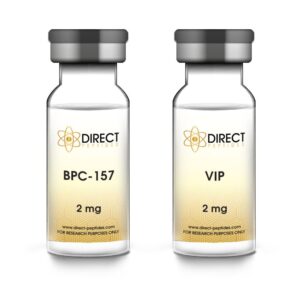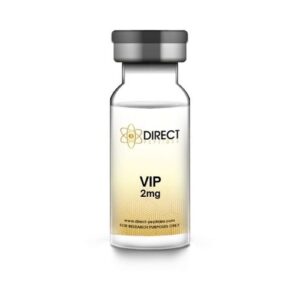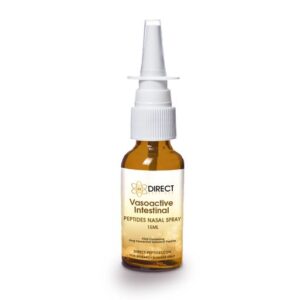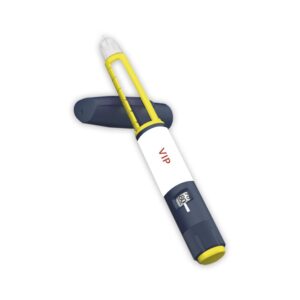Vasoactive intestinal peptide (VIP) is a neuropeptide, consisting of 28-amino acids, that belongs to the glucagon/growth hormone-releasing hormone/secretin superfamily. The peptide exerts its pleiotropic effects through three G-protein-coupled receptors: VPAC1, VPAC2, and PAC1.
New Zealand Research suggests that the primary physiological roles of VIP include vasodilation, bronchodilation, stimulation of gastrointestinal motility, and regulation of circadian rhythms. Moreover, VIP has been recognized for its potent anti-inflammatory properties. In experimental models of inflammatory disorders such as rheumatoid arthritis and sepsis, VIP demonstrated significant reduction in pro-inflammatory cytokines and chemokines.
Showing all 4 results

SALE



[1] https://pubmed.ncbi.nlm.nih.gov/5450698/
[2] https://pubmed.ncbi.nlm.nih.gov/15169929/
[3] https://pubmed.ncbi.nlm.nih.gov/15985713/
[4] https://pubmed.ncbi.nlm.nih.gov/12086606/
[5] https://www.sciencedirect.com/science/ article/abs/pii/S1094553901903062
[6] https://pubmed.ncbi.nlm.nih.gov/17343284/
ALL CONTENT AND PRODUCT INFORMATION AVAILABLE ON THIS WEBSITE IS FOR EDUCATIONAL PURPOSES ONLY.
DISCLAIMER: These products are intended solely as a research chemical only. This classification allows for their use only for research development and laboratory studies. The information available on our Direct Peptides website: https://new-zealand.direct-peptides.com is provided for educational purposes only. These products are not for human or animal use or consumption in any manner. Handling of these products should be limited to suitably qualified professionals. They are not to be classified as a drug, food, cosmetic, or medicinal product and must not be mislabelled or used as such.

401 N. Mills Ave, Ste B, Orlando, FL 32803, United States
